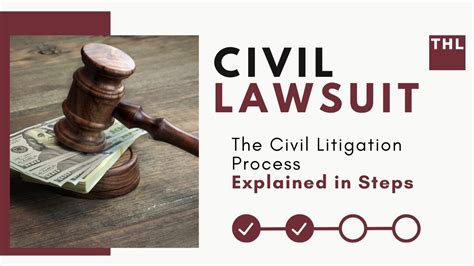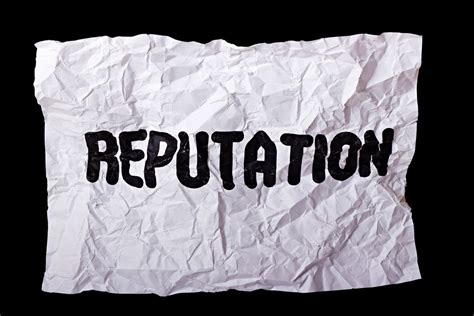- Consequences of a lawsuit for a company’s finances
- Impact of lawsuits on a company’s reputation and consumer trust
- Legal and Operational Challenges During the Process of a Lawsuit
- Negotiating a settlement versus going to trial: factors to consider
- Strategies for mitigating the negative effects of a lawsuit on a company’s bottom line and brand image
Lawsuits can have a significant impact on the financial stability and reputation of a company. The costs associated with defending against a lawsuit, including legal fees and possible settlement payments, can be substantial. The negative publicity generated by a lawsuit can damage a company’s brand and erode consumer trust. Additionally, lawsuits can distract management from core business operations and lead to a loss of productivity. To mitigate the impact of lawsuits, companies should implement effective risk management strategies and prioritize open communication with stakeholders.
Consequences of a lawsuit for a company’s finances
Being involved in a lawsuit can have severe financial implications for a company. When a lawsuit is filed against a company, it has to bear several costs such as legal fees, court costs, and compensation fees, which can severely impact the company’s bottom line.
Legal fees and cost of the lawsuit- The legal fees that a company has to pay to its lawyers usually depend on the complexity of the case and the length of time spent on it. Litigation is an expensive process, and legal fees can add up quickly. According to a report, the average hourly rate of a law firm was $317 in 2020. It suggests that the companies need to spend a hefty amount of money depending on the duration and level of complexity of a lawsuit. The legal cost can be a heavy burden on the company’s finances, and it can have long-term effects on its profits.
In addition to lawyer fees, there are additional costs associated with filing and managing a lawsuit. These may include court costs, expert witness fees, and research costs. These expenses can add up to a significant amount.
Compensation fees – If the company loses the case, it may be required to pay compensation to the plaintiff. The amount of compensation can be significant and may further impact the company’s finances. For example, the tobacco company, Philip Morris, was ordered to pay a compensation of $5.5 million in a lawsuit related to the death of a smoker.
The financial implications of a lawsuit are not limited to the costs incurred during the lawsuit. Lawsuits can significantly reduce a company’s profitability, leading to long-term financial damage. A company may face a decline in sales and a loss of customers due to negative publicity associated with the lawsuit. Negative headlines and media attention can lead to reputational damage that can cause long-term harm to the company.
The lawsuits can also affect the stock price of a company. When lawsuits become public, it can lead to a decline in the price of a company’s stock. Shareholders often worry about legal expenses and the payment of compensation, which leads to a loss of investor confidence and a decline in share prices. For example, in 2018, Facebook lost $126 billion of its value after the Cambridge Analytica scandal broke out, which involved data breach due to Facebook’s mishandling and inattention to privacy issues. There was tremendous negative media attention, which translated into an immediate decline in user engagement, which led to investors selling Facebook stock, and the share prices plummeted.
Lawsuits can be the source of a company’s financial ruin, and it is imperative for companies to have effective risk management strategies in place. Companies must take steps to avoid lawsuits by ensuring compliance with legal requirements and providing quality products, services within the bounds of law. This can significantly reduce the risk of lawsuits and associated financial implications.
In conclusion, lawsuits can severely affect the finances of a company. Companies must understand the financial implications that come with lawsuits and take steps to mitigate their risks. By having effective risk management strategies in place and abiding by the law, companies can protect their finances, maintain their reputation, and ensure the profitability and longevity of their business.
Impact of lawsuits on a company’s reputation and consumer trust
When a company is faced with a lawsuit, it is not just the legal battle that it has to deal with. The impact of the lawsuit can be far-reaching, affecting the company’s reputation and consumer trust. The effects of a lawsuit on a company’s reputation can depend on various factors, such as the nature of the lawsuit, the media attention it receives, and how the company handles the situation.
The reputation of a company is built over time and is a reflection of how the company is perceived by its customers, investors, and the general public. A company that has built a strong reputation for being trustworthy, reliable, and ethical can lose all of that overnight if it is faced with a lawsuit that paints it in a negative light. A company’s reputation can be damaged even if it is not found guilty in a court of law. The mere fact that it is facing a lawsuit can be enough to raise doubts in people’s minds about its business practices.
Another factor that can affect a company’s reputation is the media attention that a lawsuit receives. In today’s digital age, news travels fast, and a lawsuit can quickly become a trending topic on social media. The way a company responds to a lawsuit can also impact the public’s perception of it. If a company comes across as defensive, unapologetic, or indifferent, it can create a negative image in people’s minds. On the other hand, if a company handles the situation with transparency, empathy, and a willingness to learn from its mistakes, it can actually enhance its reputation.
One of the most significant impacts of a lawsuit on a company is the loss of consumer trust. A company that loses the trust of its customers can find it challenging to recover, even after the lawsuit has been settled. Consumers trust companies that are transparent, honest, and committed to ethical business practices. If a company is seen as having breached that trust, it can lose a significant portion of its customer base. This loss of consumers can lead to a decline in revenue, which can further damage the company’s reputation.
Consumer trust is not just about a company’s products or services; it is also about its values and ethics. For instance, if a clothing company is sued for using sweatshops to manufacture its clothes, it can damage the company’s reputation considerably. Similarly, if a food company is sued for using harmful ingredients, it can cause consumers to lose trust in the company’s commitment to providing safe and healthy products.
In conclusion, a lawsuit can have a significant impact on a company’s reputation and consumer trust. A company that is faced with a lawsuit should take the situation seriously and respond in a way that is transparent, empathetic, and committed to ethical business practices. By doing so, it can minimize the damage to its reputation and hopefully recover the trust of its consumers.
Legal and Operational Challenges During the Process of a Lawsuit

When a company faces legal action, it can have a significant impact on its operations, employees, and financial stability. The legal and operational challenges that arise during the process of a lawsuit can be complex and costly. In this article, we will explore some of the common challenges that a company may face during the process of a lawsuit.
1. Financial Difficulties

One of the most significant impacts of a lawsuit on a company is the financial burden. Lawsuits can be costly, and the legal fees and potential damages can be substantial. This can cause significant financial difficulties for a company, especially if it is a small business. The cost of litigation can also affect a company’s credit rating and make it difficult to obtain financing in the future. In addition, the uncertainty of the outcome of a lawsuit can make it challenging for a company to plan its finances and make business decisions.
2. Reputational Damage

A lawsuit can also damage a company’s reputation. Negative publicity can affect customer perception, leading to a loss of trust and credibility. This can be particularly damaging for companies that rely on their reputation to attract and retain customers. If a company is found liable for wrongdoing, it can also affect its relationship with stakeholders such as investors, employees, and suppliers.
3. Operational Disruption

A lawsuit can disrupt a company’s operations in several ways. First, the time and resources required to deal with a lawsuit can divert attention away from core business activities. This can lead to a decrease in productivity and profitability. Second, the legal process can involve interviews, depositions, and document requests, which can be time-consuming and disruptive to employees. Third, a lawsuit can lead to a loss of key employees or disruption in the supply chain due to damaged relationships with suppliers or manufacturers. All these factors can affect a company’s ability to operate efficiently, leading to a decline in the quality of goods or services provided.
4. Management Stress

The litigation process can be stressful and time-consuming for management, particularly if the lawsuit is high-profile or sensitive. The pressure of defending the company against allegations of wrongdoing can cause stress and anxiety, leading to health problems and a decline in productivity. The time and energy required to deal with a lawsuit can also distract management from other important tasks, such as strategic planning and business development. This can have long-term consequences for the company’s growth and success.
5. Uncertainty and Instability

A lawsuit can create uncertainty and instability for a company, especially if the outcome of the lawsuit is uncertain or if there are multiple claims against the company. The uncertainty surrounding the litigation process can make it challenging for a company to plan for the future, make investments, or hire new employees. This can lead to a decline in morale, a loss of confidence among stakeholders, and a decline in the company’s overall stability and success.
In conclusion, a lawsuit can have significant legal and operational challenges for a company. Financial difficulties, reputational damage, operational disruption, management stress, and uncertainty and instability are some of the common challenges that a company may face during the litigation process. It is essential for a company to prepare for potential legal action by having appropriate insurance, a crisis management plan, and sound legal advice. A proactive approach to risk management can help a company minimize the impact of a lawsuit and protect its long-term success.
Negotiating a settlement versus going to trial: factors to consider
When a company is faced with a lawsuit, it’s vital to know the best way to handle the situation. The common decision that most organization struggle with is whether to negotiate a settlement or go to trial. There are numerous factors that a company should consider before making this crucial decision.
Firstly, the cost of the legal fees and the potential damage award should always be considered. Trials are more expensive than settlements. Legal fees are based on several factors that include the length of the trial and the number of staff and consultants required for the case. In a trial, the legal fees can skyrocket, and a prolonged case can run the organization bankrupt. Therefore, a company should consider the cost of going to trial and weigh it against the potential damage award from the court. A company should always choose the route that would keep the cost as low as possible.
Secondly, the time involved in each decision is a crucial factor. When a company chooses to negotiate, the case could be resolved in a few months depending on the complexity of the lawsuit. In contrast, a trial can take several months or even years before being resolved. The significant time and effort invested in a trial take a company from focusing on its operations. This negatively affects the company and gives its competitors the competitive advantage. Therefore, before choosing between the two, the company should weigh the time taken to resolve issues and choose the path that saves time and resources.
Thirdly, there is the question of business reputation. Lawsuits dent a company’s reputation, and going to trial can further make the damage worse. In some cases, sensitive company information is made public, affecting the business’s integrity and credibility. A settlement allows a company to mitigate these risks and protect its reputation. Therefore, before deciding whether to settle or go to trial, an organization should assess the damage that each situation could bring to its reputation.
Fourthly, there is the emotional toll that the lawsuit takes on the company’s decision-makers. Lawsuits can be emotionally draining, and contemplating going to trial adds more weight and pressure. The team steering the company’s direction would be stressing over the legal fees, time, and potential harm to the company’s reputation. This is why it’s crucial for organizations to have a reliable legal team that offers guidance and support. A compassionate legal team takes the emotional burden off its client and gives the top executives the peace of mind to manage its business operations.
In conclusion, negotiating a settlement versus going to trial are the two options available for companies when faced with lawsuits. The key factors to consider are the cost involved, the time factor, the damage to the company’s reputation, and the emotional toll on the top executives steering the company’s direction. Before making a decision, companies should evaluate these factors carefully and decide on the action that brings the least amount of damage.
Strategies for mitigating the negative effects of a lawsuit on a company’s bottom line and brand image
Dealing with a lawsuit can be costly, time-consuming, and damaging to a company’s reputation. However, there are strategies that can help mitigate the negative effects of a lawsuit on a company’s bottom line and brand image. Here are some effective strategies for safeguarding your company:
1. Act proactively
The best way to mitigate the effects of a lawsuit is to avoid it altogether. This means taking proactive measures to identify potential legal hazards and implementing appropriate measures to prevent them. Companies should have legal departments or seek legal counsel to provide an essential focus on preventing legal pitfalls. Identifying and understanding the potential consequences of certain actions or failures to act provides insight into the steps needed to minimize risk. Regular reviews of the business practices and procedures are also necessary to keep them in compliance with the laws and regulations.
2. Respond ethically
It is always best to respond to lawsuits and other legal issues in an ethical and responsible manner. This involves having a skilled and experienced legal team in place who can investigate the claims and develop a defense strategy. In such instances, it is crucial to communicate with all parties involved in a non-confrontational manner and provide full disclosure of all relevant information. Transparent communication serves as valuable tool in building and maintaining stakeholder confidence by demonstrating the company’s commitment to ethical and responsible business practices.
3. Mind your communication
Communication is critical when dealing with legal issues. Companies should formulate standard operating procedures for communicating during different stages of a lawsuit. All parties need to be aware of these procedures and informed of any changes that might arise. Companies should also ensure that there is no defamatory or libelous language in their communication since this could lead to even further legal issues. Clarity of wording is essential in keeping the message concise, and transparent to all parties involved.
4. Stay Informed of changing legal climate
The business landscape is ever-changing, and the legal environment is not an exception. Companies need to stay aware of any legal developments that could affect their operations or expose them to legal action. In particular, they must be aware of the new regulations put in place by the relevant authorities and ensure compliance with these new rules. Regular legal training and continuing education programs for employees, managers and administrators are a great way to manage this dynamic legal landscape.
5. Insure Against Liability
It is important to note that no company can entirely protect itself from a lawsuit since legal issues arise unexpectedly. However, an insurance policy can help mitigate the financial burden of potential lawsuits. An insurance policy can protect the company against liability and defend proceedings brought against it. The insurance policy may cover the costs associated with litigation in court, settlements, judgments, or damages, depending on the type coverage purchased. This way, a company can continue operating without any significant disruption due to lawsuits.
Although a lawsuit may seem like a significant issue for any company, these strategies will help mitigate the harm and protect the bottom line. Businesses that take proactive measures to control the risk and prepare accordingly increase their chances of avoiding or handling the legal matters effectively.


